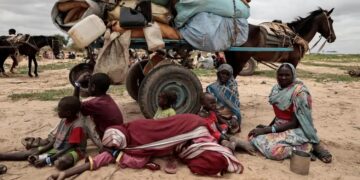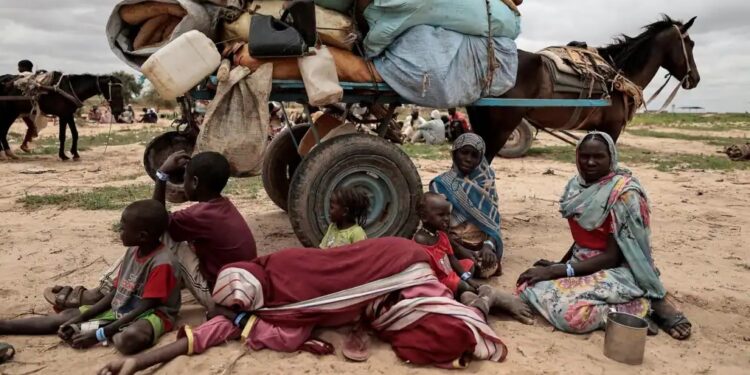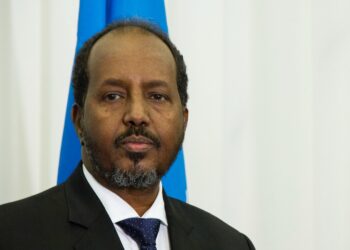By John Ikani
A senior U.N. refugee official has issued a dire warning, stressing that an immense humanitarian crisis is unfolding in Sudan. The crisis has resulted in the forced displacement of millions due to a growing and brutal conflict.
Dominique Hyde, UNHCR Director of External Relations, who recently returned from a visit to Sudan’s White Nile State and border areas in South Sudan, expressed her deep concern about the situation. She stated that “the conflict erupted suddenly, transforming once-peaceful Sudanese homes into graveyards. The fighting has expanded in both scale and brutality, yet the world’s response remains disappointingly muted, allowing violations of international humanitarian law to persist.”
Since the outbreak of hostilities on April 15 between the Sudanese Armed Forces and the paramilitary Rapid Support Forces, 4.5 million people have been internally displaced in Sudan. In addition, 1.2 million people have sought refuge in neighbouring countries such as Chad, Egypt, South Sudan, Ethiopia, and the Central African Republic.
Recent fighting in Sudan’s Darfur region has added to the displacement crisis, with thousands struggling to find shelter, many forced to sleep outdoors, particularly women and children.
The lack of access to essentials like food, shelter, and clean drinking water poses a significant concern. Moreover, it is disheartening that the atrocities witnessed in Darfur 20 years ago seem to be repeating themselves, including accounts of widespread rape and sexual violence.
The UN is calling for an immediate end to gender-based violence and sexual violence as tactics of war. Survivors must receive accountability and support, both medical and psychosocial, to help them recover. Measures to prevent the recurrence of such violence are essential.
However, funding is a critical barrier. Only 39% of the required $1 billion for humanitarian assistance to Sudanese refugees across five countries has been received.
Also, only one-third of the separate $2.6 billion appeal to aid 18.1 million people inside Sudan has been funded. This funding shortfall is seriously impacting humanitarian efforts both within and outside Sudan.
Hyde’s visit to Sudan’s White Nile State highlighted the overwhelming strain on essential services in the camps. Displaced people have sought shelter in schools, shutting them for seven months. The health situation is dire, with more than 1,200 children under five dying due to a measles outbreak and malnutrition in White Nile State between mid-May and mid-September.
The World Food Program reports that intensifying conflict in Sudan is driving more people to flee, deepening the economic crisis, and increasing hunger levels. Over 20 million people now face severe hunger, including 2.5 million malnourished children, with 700,000 suffering from severe acute malnutrition.
The climate crisis is exacerbating malnutrition in South Sudan, with over 1.6 million children under five expected to suffer from this condition in 2024.
During her week-long visit, Hyde witnessed around 20,000 people crossing into South Sudan from Sudan, a significant increase from previous weeks. Most of these individuals were Sudanese refugees, not South Sudanese returning home.
Due to underfunding, UNHCR and its partners are unable to establish a new transit center to accommodate this influx of people. Adequate water and sanitation facilities to prevent disease outbreaks and medical services are also lacking.
The redirection of funds to the Middle East, particularly due to the situation in Gaza, has further strained the resources available for humanitarian crises in Africa, Afghanistan, and other regions, making it challenging to address the urgent needs in Sudan.




































